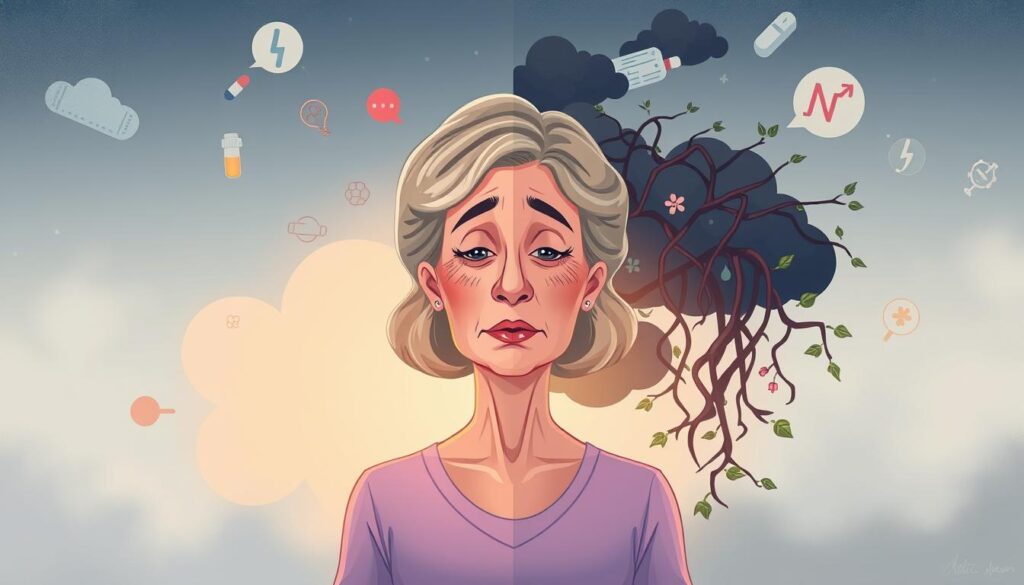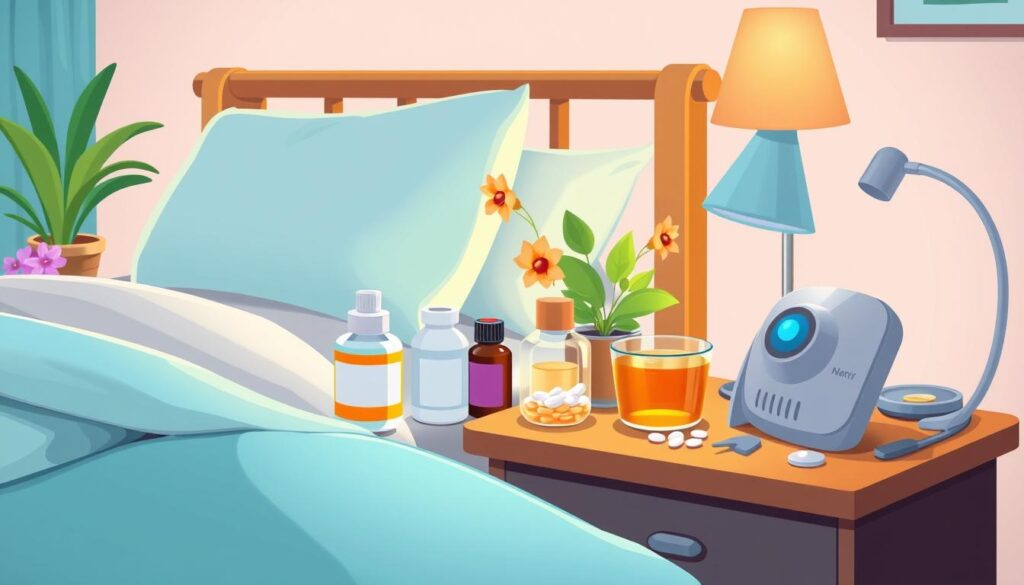When you’re over 50, life is full of both freedom and questions, especially regarding your sexual health. You may find reaching orgasm becomes harder, a condition known as anorgasmia. This can affect your close relationships. But remember, you’re not alone in this. Many women your age are going through the same thing. Realizing this is an important first step to bettering your sexual health.
In our society, we often focus on youth, leaving out women over 50 from the conversation about sexual satisfaction. But your needs and desires are still important. This guide is here to shed light on these challenges and offer helpful solutions. It’s about finding joy in your intimate life again. Take this as a chance to explore and enjoy your sexuality, because it’s important at every age. Aging doesn’t mean letting go of passion or dismissing the significance of personal fulfillment. By embracing this stage of life with openness and self-compassion, you can rediscover what brings you pleasure and confidence. Whether it’s reconnecting with a partner or exploring solo intimacy tips for seniors, there are countless ways to nurture your sexuality and prioritize your well-being.
Key Takeaways
- Anorgasmia is a common issue affecting many women over 50, but solutions are available.
- Directed masturbation can help explore self-directed sexual stimulation.
- Changes in sexual positions can enhance clitoral stimulation during intercourse.
- Consultation with a healthcare professional can help determine the best treatment options for anorgasmia.
- Estrogen and testosterone therapies may improve sexual experiences but have associated risks.
- Communication and openness with your partner are vital for addressing intimacy issues.
Understanding Climax Issues in Women Over 50
Climax issues like anorgasmia impact many women over 50. Nearly half struggle to reach climax during sex. This problem leads to feelings of frustration and inadequacy among them.
Menopause can lower arousal and orgasm due to hormone changes. Factors like blood flow and sensitivity in the genital area also affect older women’s sexual function. Issues like menopause, thyroid disease, and diabetes make these problems worse. It’s vital to talk about these changes openly.
It’s just as important to look at psychological factors. For many women, reaching orgasm becomes harder or less satisfying over time. About 60% of women over 50 have unpleasant symptoms related to climax. These can come from chronic illnesses and lifestyle choices.
Medicines for anxiety or depression might lower sexual desire and make climax hard. Understanding these issues helps in discussing them with partners and doctors. This can lead to better intimacy and emotional bonds.
| Category | Impact on Climax | Examples |
|---|---|---|
| Hormonal Changes | Decrease in estrogen and testosterone can reduce arousal | Menopause |
| Medical Conditions | Conditions can affect nerve sensitivity and blood flow | Diabetes, thyroid disease, multiple sclerosis |
| Medications | Some medications inhibit sexual response | SSRIs, blood pressure medications |
| Psycho-Social Factors | Stress and anxiety can impact desire and satisfaction | Performance anxiety |
| Lifestyle Choices | Habits may lead to or exacerbate climax issues | Smoking, sedentary lifestyle, alcohol use |
Common Causes of Anorgasmia After 50
Anorgasmia is when you can’t reach orgasm. It’s common in women over 50 for several reasons. One big cause is hormonal changes due to menopause. When estrogen drops, you may face issues like vaginal dryness and less interest in sex.
Psychological problems also play a big part. Feeling stressed, anxious, or depressed can make orgasms hard to achieve. Problems in your relationship can add to the stress, making sex less enjoyable. It’s important to understand these psychological issues to tackle intimacy challenges.
Health issues like diabetes or heart disease can interfere with sexual function. And some medications for long-term health problems might lessen your sexual desire or ability to climax.
Below is a comparison of various causes and influences related to anorgasmia:
| Category | Specific Causes | Impact on Sexual Health |
|---|---|---|
| Hormonal Changes | Menopause effects, estrogen decline | Vaginal dryness, reduced libido |
| Psychological Factors | Anxiety, depression, past trauma | Performance anxiety, emotional barriers |
| Medical Conditions | Diabetes, heart disease | Impaired sexual function |
| Medications | Chronic illness treatments | Negative effect on libido and climax |

Knowing these causes helps you talk better with your doctor. Understanding your body and reactions aids in finding the right solutions. This can improve your sexual health and intimacy with your partner.
Women’s Guide: Climax Issues and Solutions After 50
As women enter their 50s, they might face climax challenges. Understanding the causes helps find the right solutions. Both medical and psychological factors contribute to these issues.
Medical Conditions Affecting Orgasm
Some medical problems can make it hard to climax. It’s noted that 10 to 40 percent of women struggle with this. The issues include:
- Loss of estrogen and testosterone after menopause
- Decreased blood supply to the vaginal area
- Chronic conditions like diabetes that impair sensation and arousal
These issues can lower sexual desire, leading to challenges. Talking openly with doctors is key. Treatments like estrogen therapy and vaginal moisturizers can help with dryness and discomfort.
Psychological Factors and Performance Anxiety
Performance anxiety affects many women over 50. About 58% of women say stress and anxiety block their ability to climax. Other issues are:
- Lack of sufficient arousal or stimulation (48%)
- Feeling that there is not enough time (40%)
Some women feel distressed, which affects their sex lives. They might think their partners have lost interest. Seeking counseling and working on communication in relationships can help significantly.

Effective Strategies to Enhance Climax
After 50, women often seek ways to improve their intimate experiences. Trying new things can make a big difference. Using lubricants and sexual aids also boosts satisfaction. These steps can greatly enhance your sensual life.
Incorporating Novelty in Your Intimate Life
Adding variety spices up your intimacy. Trying new techniques or places adds excitement. It also increases dopamine, making you feel more aroused.
Considering new positions or elements can make things more lively. This keeps your intimate life interesting and enjoyable.
The Role of Lubricants and Sexual Aids
Lubricants are key for a comfortable and more enjoyable experience. Warming them up before use can make sensations even better.
Sexual aids, like vibrators, are important for many to reach climax. They provide steady stimulation. Talking openly with your partner about using these can improve your relationship.

Exploring Treatment Options for Climax Issues
Addressing climax issues means looking into different treatment options for sexual dysfunction. This is especially for women over 50. It’s important to talk with healthcare professionals first. They can give advice based on your health history and lifestyle after a thorough check.
Consulting Healthcare Professionals
Getting expert help is key when dealing with sexual health problems. Doctors might do checks like a pelvic exam. They will also talk about any health issues that could affect your sex life. Diseases like diabetes and arthritis can make sexual intimacy hard. Talking to experts helps find the right treatment options for sexual dysfunction. It also helps handle other health problems that might be involved.
Lifestyle Changes and Their Impact on Sexual Health
Making small changes in your life can greatly improve your sex life. Things like exercise, eating right, and managing stress can make you feel better. They can also boost your energy. Here are some tips:
- Exercise regularly to improve blood flow.
- Try calming activities like yoga and meditation.
- Keep a healthy weight to avoid sex-related problems.
These lifestyle tweaks can help lessen some issues tied to sexual dysfunction.
Exploring Medications and Hormonal Therapies
Medication and hormone treatments could make sex better for many women. Hormone replacement might help with desire and deal with changes from menopause. But, it’s very important to talk to doctors first. These treatments need to be watched for any side effects.
Finding the right treatment requires careful thought and advice from doctors. Getting the help tailored to you can make your sex life better. It can also improve how close you feel to your partner.

Communication: The Key to a Fulfilling Intimate Life
Talking openly and honestly with your partner matters a lot for overcoming issues related to climax. Discussing your likes and dislikes in intimacy makes a safe area for both to share desires and worries. Talking about things like dryness, using lubricants, or how medications affect you can find good fixes. These fixes make your sexual experiences better.
Discussing Needs and Preferences with Your Partner
Having discussions about your sexual life helps both partners feel closer and understood. It’s about sharing what feels nice and the obstacles you face. Clear talks in sexual relationships are crucial. This might mean trying new things or creative ways to make intimacy better. Regular talks help both understand each other’s changing needs better.
Encouraging Open Dialogue about Sexual Experiences
Keeping an open dialogue about sexual experiences helps improve your intimate life. It reduces anxiety around performance and makes your relationship stronger. Practicing acceptance and easing performance pressure lets deeper, more enjoyable sexual interactions happen. Remember, adapting to changes in sexual likes is a journey that leads to a more satisfying intimate life.









